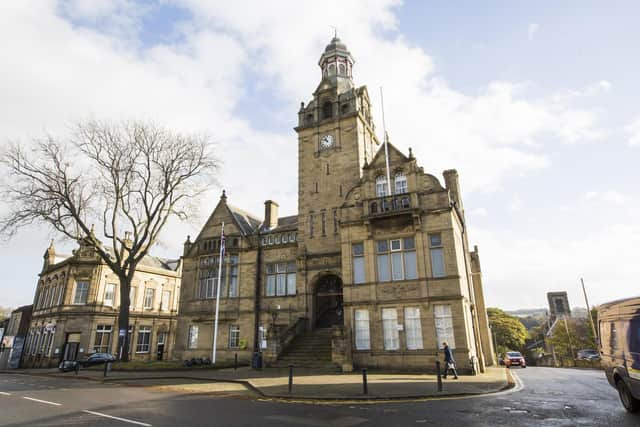Yorkshire councils sell off £1 billion of public buildings amid bankruptcy fears
Analysis by the Institute for Public Policy Research (IPPR) think tank has found that an estimated £947 million of assets have been sold by local authorities in the region since 2010.
This includes almost a quarter of a billion of assets in Leeds, according to data.
Advertisement
Hide AdAdvertisement
Hide AdThe analysis comes as councils across the UK, including those in Yorkshire are looking to issue Section 114 notices, effectively declaring bankruptcy over an inability to balance their budgets through government cuts and the mismanagement of funds.


IPPR’s research comes as part of a new blueprint for levelling up, titled “an antidote for loss”.
Figures obtained through Freedom of Information requests show that an estimated 75,000 council assets worth around £15 billion have been sold off across the country since 2010.
The think tank said that though under-pressure local authorities often have “little choice but to sell” it represents a “loss loss to communities that is unlikely to be reversed”.
Advertisement
Hide AdAdvertisement
Hide AdIt warned that a further 2,500 council-owned buildings and assets are already at risk in the next five years, and that the same number newly came into community ownership in the past decade.
Director of IPPR North, and report co-author, Zoë Billingham said: “People have lost far too much over the last 13 years.
“Communities have lost billions worth of public land and buildings in their areas, local safety nets are crumbling all whilst government plays fast and loose with major regional infrastructure projects.
“People want and deserve better than this. They want functioning public services, to receive a fair share of investment and to restore pride in their places. Regional rebalancing must be reprioritised by central government and through support of regional leaders who continue to champion the agenda locally.
Advertisement
Hide AdAdvertisement
Hide Ad“It’s time to rewire the status quo so that wealth, power and opportunity can be accessed and shared by everyone, in the places they live”.
The think tank called for a new “fair funding formula for major public sector investment projects” as well as increased transparency of public asset ownership to help to protect communities from continual losses, alongside support for communities to regain assets.
Executive director of IPPR, Carys Roberts said: “Our economy and democracy are not yet structured to help people everywhere thrive. Citizens still expect regional rebalancing to happen and through our citizen conversations they told us how they want a fairer, more transparent and committed offer for their places. It’s time for an upgrade, our citizens’ blueprint for levelling up offers the antidote to loss.”
It comes as councils across Yorkshire are facing further challenges which have seen Kirklees restrict all non-essential spending in order to issue a Section 114 notice.
Advertisement
Hide AdAdvertisement
Hide AdMeanwhile the SIGOMA group of councils, which represents several urban councils in the North, has warned that 26 local authorities could declare bankruptcy in the next two years.
Earlier this week Michael Gove, the Levelling Up Secretary, announced that Commissioners are to be sent to Birmingham City Council as part of emergency measures for the country’s largest local authority.
The selling of authority-owned assets, job cuts and council tax rises are all anticipated as a result in a bid to help balance the books.
Yesterday Kim Leadbeater, the Batley and Spen MP, wrote to Ministers to insist on an urgent review of funding for local authorities including Kirklees Council.
Advertisement
Hide AdAdvertisement
Hide Ad“Since 2010, when the Conservatives came to power, Kirklees has lost over a billion pounds in funding,” she said in a letter to Mr Gove.
The council is set to consult the public about the savings it will have to make, with urgent meetings taking place between local groups to discuss how to protect vital services.